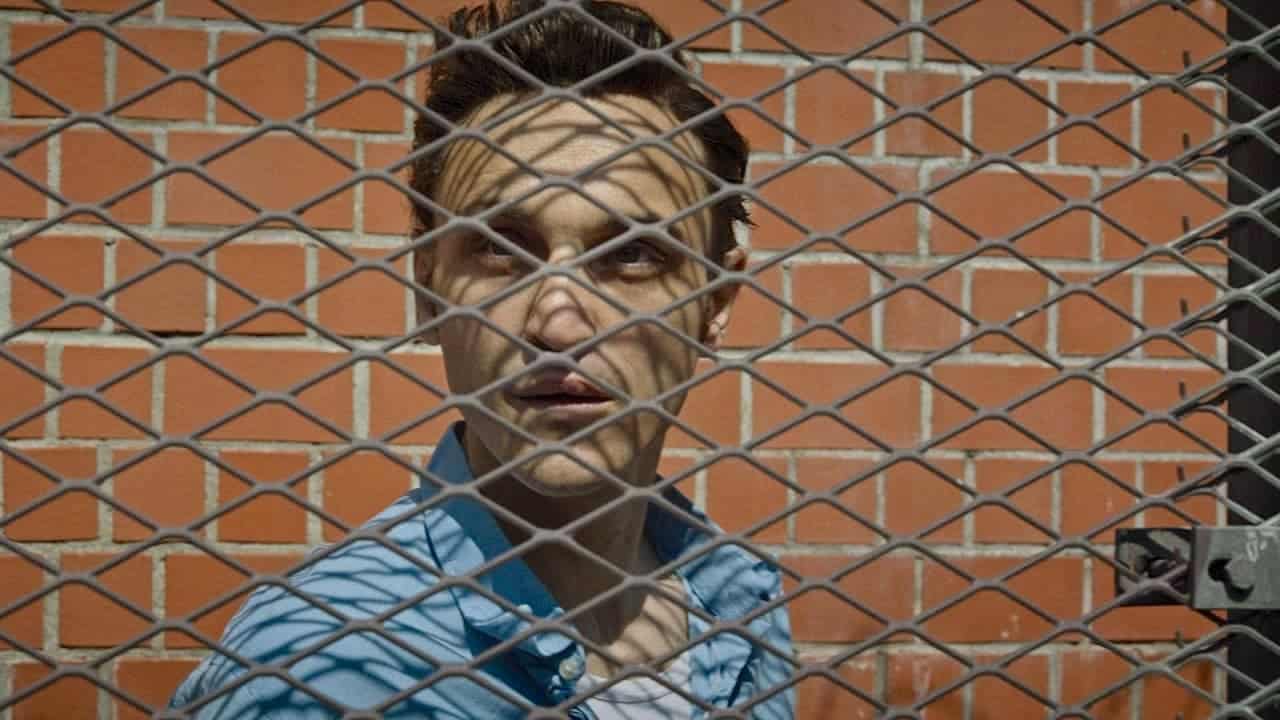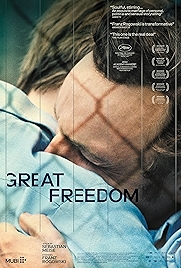Talk about the love that dare not speak its name (to quote Oscar Wilde), Great Freedom (Große Freiheit in the original German) has a monumental love story at its centre but isn’t quite sure about expressing it.
The whole film operates like this, sideways, backwards, though it starts straightforwardly enough with some footage from a camera hidden in a men’s public toilet, where Hans (Franz Rogowski) is caught indulging in a series of same-sex encounters of a salty kind, with whoever happens to be passing.
The footage is part of evidence in Hans’s trial for crimes against decency and he’s soon in jail. It’s 1968, homosexuality as a crime is about to be decriminalised, Neil Armstrong is soon to walk on the Moon, and the underground gay subculture is also about to have its small step/giant leap moment.
But for now Hans is in chokey, where 175-ers, as offenders against paragraph 175 of the German criminal code are called, have a tough time. The action suddenly switches back to 1945, where Rogoswki is now playing a clean-shaven prisoner newly arrived in jail, having been “liberated” from a concentration camp by the Americans, only to find himself back under lock and key, and for exactly the same crime – homosexuality. Irony?
And it switches again, to 1957, where Rogowski is again a gay man, in love with another inmate and trying to grab moments of tenderness (and sex) as and when he can.
Though it can be easy to get it wrong (I did), all three iterations of Rogowski are the same man, Hans, who has found himself repeatedly in the same prison, for the same crime, until one day it all changes.
Shot in a flat palette to reflect the drab everyday existence of jail, Great Freedom looks to all intents and purposes like Hans’s story, but is in fact more about Viktor, Hans’s homophobe cellmate in 1945, whose belligerent attitude changes when he spots the telltale concentration camp tattoo on Hans’s arm and who by 1968 is an ageing long-term lag with a bad heroin habit and an even worse hairstyle.
It’s also, at an oblique remove, the story of homosexuality in Germany from great oppression (the Nazis) to great freedom (decriminalisation), and in this respect it’s Viktor, again, who is the interesting character. He has an arc. His attitude changes. Hans is Hans – randy, clever and compassionate when we meet him, changing only in the sense that he gets a grip on life inside.
Two excellent performances can’t quite hide the something slightly missing from this underpowered drama. Rogowski is all Daniel Day-Lewis intensity and Steve McQueen “in the hole” swagger as Hans, while Georg Friedrich is more the Robert Shaw type – a square head and a smile playing across his lips that might at any moment turn to a sneer.
The film won the Jury Prize at Cannes in the Un Certain Regard section – where offbeat and “non-traditional” movies hang out. Which is another way of saying that there are big, milkable opportunities which director Sebastian Meise and his co-writer Thomas Reider refuse to milk, very laudable if melodrama isn’t quite your thing. The little touches, though, have power. Like the importance of tobacco to Hans, especially when in solitary, where a glowing ember in the total darkness acts as a little symbolic beacon.
Große Freiheit is also, ironically, the name of the gay club that Hans visits when he’s finally let out – the law has changed and they can’t keep him in any more – a seedy dive with free jazz grinding away upstairs and scores of sweaty men grinding away below. Hans’s reaction? Perhaps not quite the one you’d expect.
Great Freedom – Watch it/buy it at Amazon
I am an Amazon affiliate
© Steve Morrissey 2022


